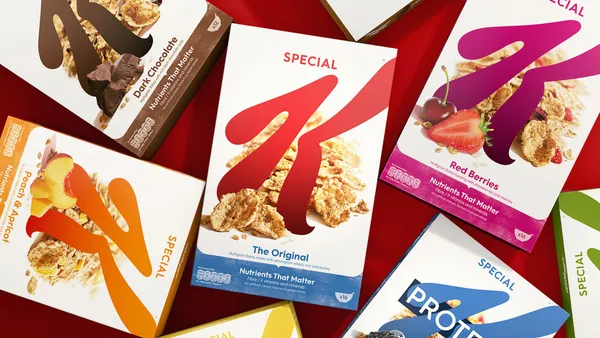Dive Brief:
- Publicis Groupe, Omnicom Group and Interpublic Group of Cos. (IPG) posted impressive gains in their most recent financial results, the latest sign that a pandemic rebound is starting to bolster the embattled agency business.
- Publicis saw organic growth, a key measure of agency health, up 17.1% in the second quarter, a sharp turnaround compared to the 13% drop recorded over the year-ago period when the pandemic first shut down the economy. IPG reported organic net revenue rose 19.8% in Q2 versus a 9.9% decline over the same period in 2020. Omnicom similarly had a strong showing, with organic growth of 24.4% in Q2.
- Publicis and IPG raised their full-year forecasts following the earnings, while Omnicom executives indicated the group could engage in more dealmaking in the second half. Though some uncertainties linger with the spread of the COVID-19 delta variant, agencies could be better girded for disruptions moving forward.
Dive Insight:
A batch of Q2 earnings last week showed agencies on the mend following a brutal pandemic period that led to mass advertiser pullbacks and a sluggish market for new business. Publicis chief Arthur Sadoun said the group — bolstered by a robust U.S. business — actually scored better results on key performance indicators in 2021's first half versus the same period in 2019, well before COVID-19 rocked the category. IPG offered a similar assessment, suggesting agencies have the chance to recover sharp losses from the past year.
"Our results this quarter compare favorably not only to the same period last year — which while the steepest decrease of the recession was well ahead of our peer group — but also Q2 of 2019, which underscores the continued evolution and vitality of our offerings," IPG chief Philippe Krakowsky said in a statement. He later cautioned that the pandemic continues to create uncertainty in many parts of the world.
Still, fresh tailwinds arrive as agencies stand at an inflection point where they need to reimagine their businesses to center more on digital and data-driven functions. Those trends have been pressing for years, but the pandemic rapidly accelerated consumer adoption of channels like e-commerce, while changes to digital marketing — namely Google's planned deprecation of third-party cookies — are upending bedrock marketing strategies, with brand clients scrambling for tech alternatives and consultative help.
Responding to those demands, and with some of their war chests replenished, agencies are picking up their marketing dealmaking. Publicis recently announced it would acquire CitriusAd, a platform that helps brands optimize their marketing performance on e-commerce sites, to pair with its Epsilon data-marketing unit. Epsilon has played an important role in Publicis' turnaround, notching 31.1% growth in Q2. Japanese ad giant Dentsu purchased creative commerce services firm LiveArea from PFSweb for $250 million earlier in July. Omnicom in April snapped up digital marketing firm Areteans as part of its moves to provide marketers with deeper expertise in digital transformation and customer experience.
On a call discussing the Q2 results with analysts, Omnicom chief executive John Wren said the group would continue pursuing acquisitions in precision marketing, digital transformation, commerce, media and healthcare.
"We have ramped up our M&A efforts in these areas and are pleased with the opportunities we are seeing," Wren said on the call. "We remain disciplined with respect to our strategic approach and valuation parameters."
At the same time, the pandemic recovery may offer agencies the chance to shed old businesses that are less relevant or restructure operations as employees seek new working models, including hybrid and fully remote work. Omnicom divested its ICON International specialty media shop in June.















